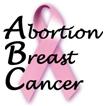National Cancer Institute Shamelessly Carries on Cover-Up
March 20th, 2002
The Coalition on Abortion/Breast Cancer, an international women’s organization, accused the National Cancer Institute (NCI) of suppressing the truth about research exploring the abortion-breast cancer link in its recently revised fact sheet. The group’s president, Karen Malec, said: "The NCI is conducting a shameless campaign to conceal the truth about research paid for by U.S. taxpayers."
Biological evidence and 28 out of 37 studies done in different parts of the world since 1957 associate abortion with the disease. Thirteen of 15 studies done in the U.S. have confirmed a link. Although most of these were funded by the NCI, the new fact sheet cites only two U.S. studies. 1 Our website lists the studies at < www.AbortionBreastCancer.com >.
"This isn’t the first time that the agency has lied to women," said Malec. "Its website said in 1999 that only animal research had provided a basis for the relationship between abortion and the disease, although 26 of 32 studies conducted on women in a number of countries had reported risk elevations by then.
In 1998, the NCI was denounced by a physician, Congressman Tom Coburn, who asserted that the agency had deceived the public about the research and that its fact sheet was ‘not scientifically driven, on this issue, but is more politically driven....’
"Why should women believe an agency with this kind of track record?" asked Mrs. Malec.
The latest fact sheet says, in part, "The current body of scientific evidence suggests that women who have had either induced or spontaneous abortions have the same risk as other women for developing breast cancer. Until the mid-1990s, results from studies of breast cancer and induced or spontaneous abortion were inconsistent. Some investigators reported an increase in risk, typically from interview studies of several hundred breast cancer patients compared to other women. Other studies found no evidence of increased risk."
To set the record straight, 18 out of 23 studies published by 1996 had found risk elevations. Seven studies had reported a more than twofold increased risk, 3 of which were American studies. The NCI continues to erroneously treat miscarriage and abortion as if their effects on breast cancer risk were one in the same. Most miscarriages do not result in an increased risk because of an insufficiency of estrogen, a known tumor promoter.
California obstetrician-gynecologist, Frank Joseph, said "In induced abortions, there is an elevated estrogen level. In spontaneous abortions, the level is low. Why is the NCI confused on this issue?"
The fact sheet makes no mention of the 1989 Howe study. As a prospective study, it did not rely on self-reported histories of abortion, but on medical records. Howe et al. reported a 90% increased risk for women in New York. 2 "The NCI would, apparently, rather forget about Howe," said Mrs. Malec. "It’s not even cited, nor are 31 other studies exploring the link. Most notably, the only study specifically commissioned by the NCI, Daling et al., was omitted." 3
Dr. Joseph concluded, "For the NCI to ignore certain studies that have found that abortions do increase the risk of breast cancer, just suit their political agenda is reprehensible."
Joel Brind, Ph.D., president of the Breast Cancer Prevention Institute, identifies the following statement on the NCI fact sheet as a lie: "Most of the early studies necessarily relied on self-reports of induced abortion, which have been shown to differ between breast cancer patients and other women."
The study used by the NCI as evidence to support its assertion that patients are more likely to truthfully report their abortions than healthy women, Tang et al. 2000, actually reported quite the opposite finding in its abstract. The Tang study said, "The authors’ data do not suggest that controls are more reluctant to report a history of induced abortion than are women with breast cancer." For this reason, the NCI cannot rely on Tang to disregard the findings of the many studies relying on self-reporting. 4
The fact sheet cites several shortcomings which it alleges are inherent in the studies implicating abortion as a risk factor for breast cancer. Dr. Brind remarked, "Ironically, the same studies that the NCI depends upon as primary evidence for its claim that abortion does not elevate a woman’s risk of breast cancer are also the studies which embody those very shortcomings. For example, the NCI cites problems with small numbers of women and questions of comparability between patients and healthy women as being difficulties with the research linking abortion with breast cancer, yet Lazovich et al. (2000) and Newcomb and Mandelson (2000) were exceptionally small studies, based on only 26 and 23 patients who'd had an abortion, respectively. Questions of comparability are glaring with the Goldacre (2001) and Melbye (1997) studies. Goldacre's study did not count breast cancer patients whose abortions had taken place outside of National Health Service Hospitals. Consequently, most of the women in the Goldacre study who'd actually had an abortion are misclassified as not having had an abortion. That's deja vu from the Melbye study." 5 6
Mrs. Malec said, "The NCI depends on Congress for its budget and must be careful not to antagonize the powers-that-be whose hands are in the pockets of the abortion industry. It doesn’t surprise me at all that this new fact sheet was produced just in time for the false advertising lawsuit against a Fargo, North Dakota clinic which goes to trial on March 25, 2002. The clinic, which depends on the spurious statements of the NCI, is being sued for having misrepresentated the medical research in a pamphlet given to its patients. In addition, Women’s E News reported in a February article that the NCI would be revising its fact sheet. This creates the appearance of collusion between the abortion industry and the NCI because this news organization is funded, in part, by the NOW Legal Defense Fund."
Mississippi radiation oncologist, Scott Moon, lamented that women are being denied the opportunity to receive risk reduction drugs and to give their informed consent for their abortions in order to benefit the abortion industry. He opined, "Even if one is not convinced that there is a definite link between (abortion and breast cancer), shouldn’t we err on the side of caution? Are we doing more harm by providing a woman with too much information or by censoring out information about a potentially life-threatening side effect from her decision making process?"
The Coalition on Abortion/Breast Cancer is an international women’s organization founded to protect the health and save the lives of women by educating and providing information on abortion as a risk factor for breast cancer.
- 1. Lazovich et al (2000) Epidemiology, 11:76-80; Newcomb et al. (2000) Cancer Causes and Control, 11:777-781.
- 2. Howe et al. (1989) Int J Epidem 18:300-4.
- 3. Daling et al. J Natl Cancer Inst (1994) 86(21):1584-92.
- 4. Tang, et al. Epidemiology (2000), 11:177-180.
- 5. Goldacre MJ et al., J Epidem Community Health (2001) 55:336-7.
- 6. Melbye et al. N Engl J Med (1997) 336(2):81-5.

